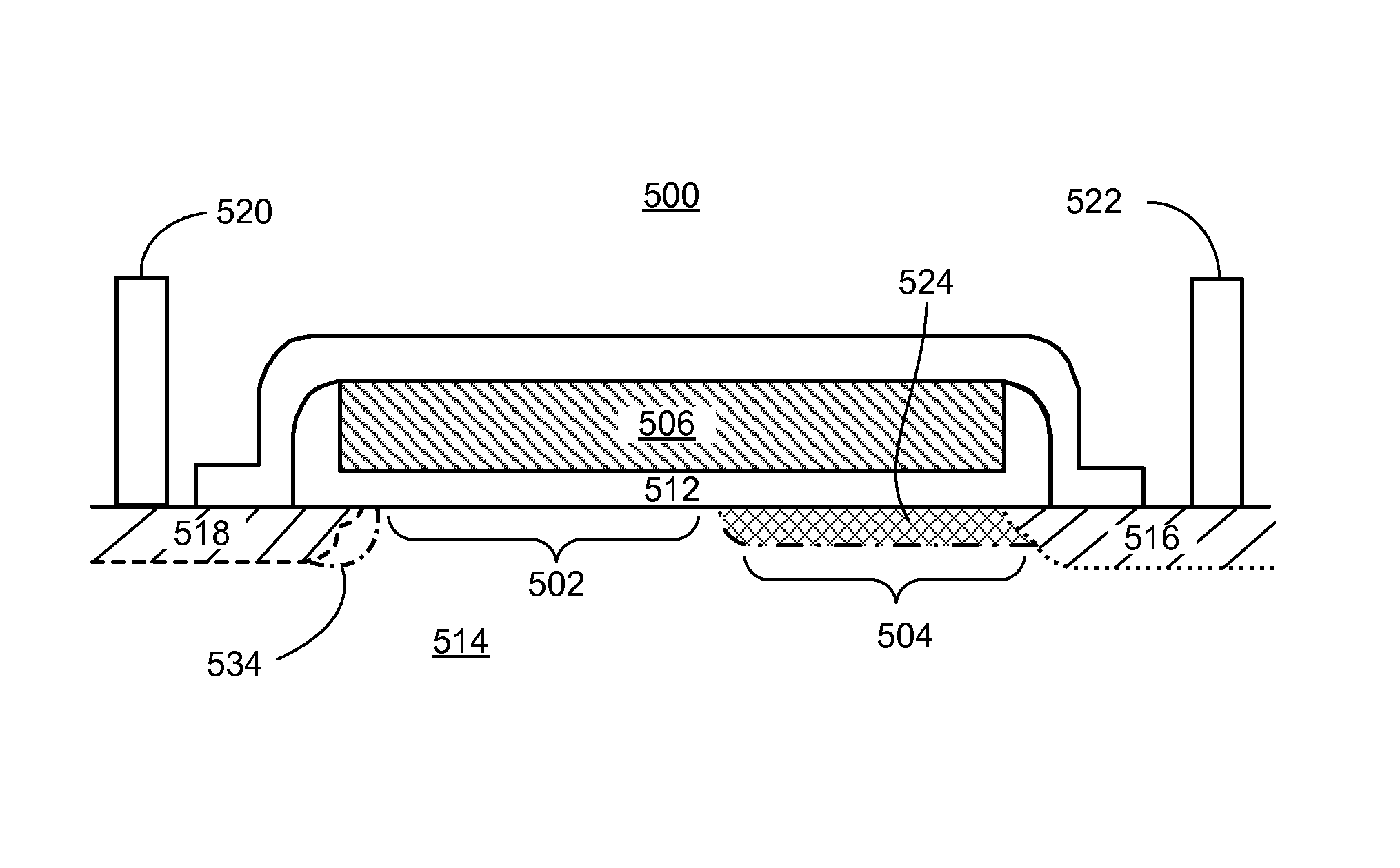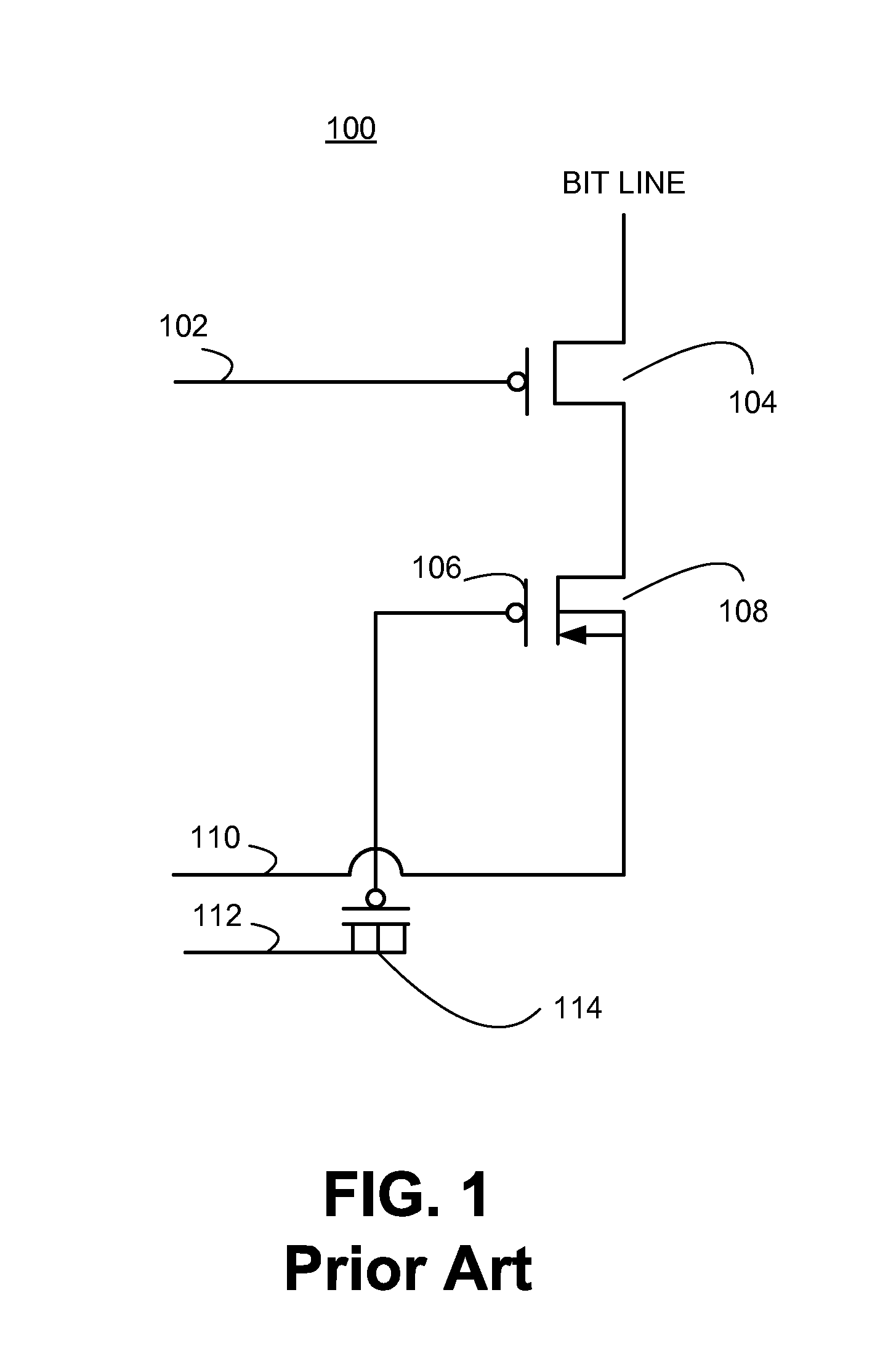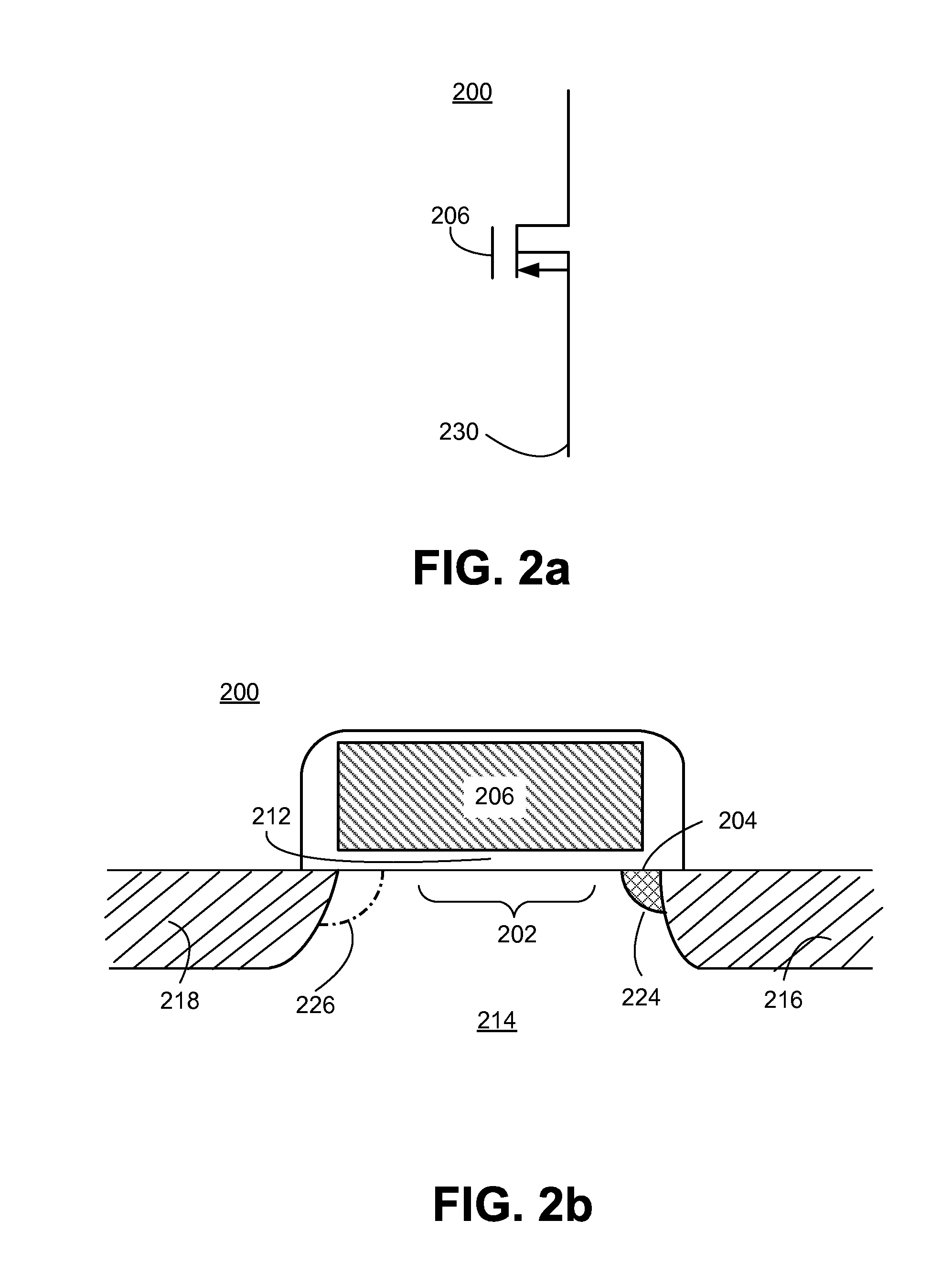Very dense NVM bitcell
a bitcell, very dense technology, applied in the direction of instrumentation, cad circuit design, computer aided design, etc., can solve the problems of increasing the cost of producing the bitcell and possibly changing the performance or characteristics of the produced device, so as to reduce the size, enhance the capacitive coupling of source-floating gate, and reduce the effect of siz
- Summary
- Abstract
- Description
- Claims
- Application Information
AI Technical Summary
Benefits of technology
Problems solved by technology
Method used
Image
Examples
example embodiments
General Overview of Example Embodiments
[0025]Embodiments save space compared to conventional NVM bitcells, in part, by removing the select transistor and 104 and erase transistor 114. The selection and erasure mechanism may instead be integrated into the memory transistor 108 itself, through specialized design of the physical layout of the memory transistor 108.
[0026]FIG. 2a is a circuit diagram of a NVM bitcell 200 according to one embodiment. The NVM bitcell 200 of FIG. 2a saves space over conventional NVM bitcells (i.e. it is more dense), because all functions of the bitcell have been incorporated into a single memory transistor 200. In the description of FIG. 1 above, it was useful to distinguish the bitcell from the transistors that made up the bitcell, because there was more than one transistor in each bitcell circuit. In contrast, the terms “NVM bitcell” and “memory transistor” may be used interchangeably in embodiments described below with reference to FIGS. 2a through 5b be...
example layout
Created with One Additional Mask Step
[0053]FIG. 5a is a plan view of a NVM bitcell 500 according to one embodiment. The NVM bitcell 500 with a second layout can be is fabricated using the standard CMOS process, plus one additional mask step. In the CMOS process, the additional mask step is added before the floating gate oxide 512 or floating gate 506 is added on top of the well 514. The second layout also increases the capacitive coupling between source 516 and floating gate 506. In a P-type embodiment, the NVM bitcell 500 includes a rectangular floating gate 506 that sits on top of a N-well 514. In a N-type embodiment, the NVM bitcell includes a P-well instead.
[0054]In one embodiment, the N-well 514 sits beneath the entirety of device 500 (not shown in FIG. 5a, see FIG. 5b) The bitcell 500 has asymmetric doping between the source 516 and the drain 518. The source region 516 extends partway underneath the floating gate 506 on the side of the floating gate 506 closest to the source c...
PUM
 Login to View More
Login to View More Abstract
Description
Claims
Application Information
 Login to View More
Login to View More - R&D
- Intellectual Property
- Life Sciences
- Materials
- Tech Scout
- Unparalleled Data Quality
- Higher Quality Content
- 60% Fewer Hallucinations
Browse by: Latest US Patents, China's latest patents, Technical Efficacy Thesaurus, Application Domain, Technology Topic, Popular Technical Reports.
© 2025 PatSnap. All rights reserved.Legal|Privacy policy|Modern Slavery Act Transparency Statement|Sitemap|About US| Contact US: help@patsnap.com



